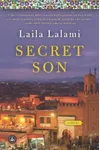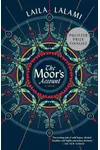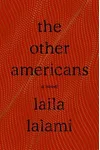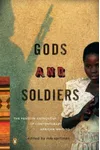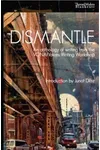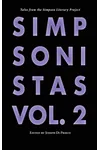Picture a Moroccan storyteller weaving tales that bridge continents and cultures—meet Laila Lalami! Born in Rabat in 1968, this Moroccan-American novelist and essayist has captivated readers with her poignant explorations of identity, belonging, and the immigrant experience. Her Pulitzer Prize-finalist novel, The Moor's Account, is just one gem in a career that’s as vibrant as the stories she tells.
From her roots in Morocco to her role as a distinguished professor at UC Riverside, Lalami’s journey is a testament to the power of language and storytelling. With a knack for crafting characters who feel like old friends (or complex strangers), she’s become a vital voice in contemporary literature. Let’s dive into her world!
The Making of Laila Lalami
Growing up in a working-class family in Rabat, Lalami spoke Moroccan Arabic at home and learned French and Standard Arabic in school. Children’s books in French sparked her early love for stories, and she began writing her own in the same language. After earning a degree in English from Mohammed V University, she received a British Council fellowship to study linguistics in the UK, followed by a PhD at the University of Southern California in 1992. It was in the US that she switched to writing in English, finding it a liberating medium free from Morocco’s colonial ties to French. By 1996, her stories began appearing in print, setting the stage for a remarkable career.
Laila Lalami’s Unforgettable Stories
Lalami’s debut, Hope and Other Dangerous Pursuits (2005), is a collection of linked stories following four Moroccan immigrants crossing the Straits of Gibraltar. Its innovative structure—flashing back to their pasts and forward to their fates—earned praise for its vivid characters and unflinching look at migration. Secret Son (2009) dives into Casablanca’s slums, telling a coming-of-age tale of a young man uncovering his father’s identity, layered with political and personal stakes.
Her masterpiece, The Moor’s Account (2014), reimagines the life of Estevanico, a Moroccan slave and the first Black explorer of America, part of the 1527 Narváez expedition. This historical novel, lauded for its rich prose and Muslim perspective, won the American Book Award and was a Pulitzer Prize finalist. More recently, The Other Americans (2019) unfolds as a mystery around a Moroccan immigrant’s death in California, told through nine narrators. A National Book Award finalist, it’s a tapestry of family secrets and cultural divides. Her 2020 essay collection, Conditional Citizens, probes American identity with sharp insight, while her latest novel, The Dream Hotel (2025), explores surveillance in a dystopian future.
Lalami’s style blends lyrical prose with incisive social commentary, often centering marginalized voices. Her themes—displacement, belonging, and resilience—resonate universally, making her work both intimate and expansive.
Why Laila Lalami Matters
Lalami’s stories don’t just entertain; they challenge readers to see the world through the eyes of the ‘other.’ Her focus on immigrant and Muslim-American experiences has reshaped contemporary fiction, offering nuanced portraits that counter stereotypes. As a professor, she inspires new writers, and her fellowships—Fulbright, Guggenheim, and Radcliffe—reflect her intellectual heft. Translated into 20 languages, her books connect global readers, proving literature’s power to foster empathy.
About Laila Lalami
- Born: 1968, Rabat, Morocco
- Key Works: The Moor’s Account, The Other Americans, Conditional Citizens
- Awards: American Book Award, Pulitzer Prize finalist, National Book Award finalist
- Fun Fact: She writes in English, her fourth language, after Moroccan Arabic, Standard Arabic, and French!

Ready to explore a world of identity and adventure? Snag The Moor’s Account or The Other Americans and dive into Laila Lalami’s captivating storytelling!
